In a US right-wing on-line journal, artist, Cheryl Pass[1] made allusions to the development of ‘thought leadership’ as representative of a totalitarian world, of that scenario painted so well in Orwell’s 1984. This blog identified the marketization and branding of ‘thought’, using those who have something to say that captures a zeitgeist or something that can be used to influence behaviour and attitude or to exert political control.
Thought leaders may be seen as sinister beings, channelling or herding others by setting the words and terms for engagement which demand adherence. This requires learning the language of ‘newspeak’ or speaking the right words in context, something we note in many of our professions and academic disciplines. Such a definition of thought leadership denotes a lack of control over life except amongst those who have wrested it politically by setting the trends of thought or employing those trends for their own purposes.
The negativity associated with these political analyses of ‘thought leadership’ are reflected also within the personal. When I was asked to contribute to the Making Your Voice Heard event and to speak about being a thought leader I had to question what that meant and how that affected me as a person and academic. At a personal level I do not feel comfortable with an ascription of thought leadership which reminds one of sheep and shepherds, of superiority and, more sinister, of manipulation and control for ends which probably do not reflect altruism.
Talking about engagement with the media and why this can be important as an academic seemed more grounded and the brief to offer ‘more of a practical guide to illustrate why you have built up a reputation for thought leadership, how you did it and also look at how you think it has benefited you’ seemed to make more sense and presented a degree of comfort – if one removes the term ‘thought leadership’.
It is this that I intend to highlight, hopefully democratizing the ‘offending term’ and describing some of the ups and downs of engaging with the media and suggesting things that I wish I had done differently including examples of bad practice/good practice.
In response to the original invitation I rushed off an email and duly committed the cardinal sin of not attentively proof reading. So instead of saying I will allude to the impact of some of my pieces I stated that I would talk about the impact of my pies! What I have done in this introduction and in adding a subtitle is to communicate some of my thoughts about this process as we move towards lunch and, possibly, my ‘pies’ later.
I will use a fairly standard approach to discussing my involvement with the media: 4Ws&H, but not necessarily in that order –
Why do it?
When to do it?
How to do it?
What to do and what not to do?
Where to do it?
Why do it?
A common complaint I hear is I’m just too busy to talk to the media, or there’s no point in doing so. The power of the media in daily life is obvious, however, and if we want to make our voices heard we need to engage, and to do so in the best way possible for our integrity, our disciplines and our beliefs. I often use mnemonics for myself and with my children and this helps me in respect of why I choose to engage with the popular press and other media. A mnemonic used to help me understand why to engage with the media:
‘growing strawberries with rhubarb entirely (without) manure’
Gaining voice
Sharing your knowledge widely
Widely known for particular thoughts, views and areas of knowledge
Representing and enhancing your discipline
Enhancing reputation – university, to peers, students and prospective students, your own – think REF and impact!
Moral imperatives:
By means of ever more effective methods of mind-manipulation, the democracies will change their nature; the quaint old forms – elections, parliaments, Supreme Courts and all the rest – will remain.
The underlying substance will be a new kind of totalitarianism. All the traditional names, all the hallowed slogans will remain exactly what they were in the good old days. Democracy and freedom will be the themes of every broadcast and editorial. Meanwhile the ruling oligarchy and its highly trained elite of soldiers, policemen, thought-manufacturers and mind-manipulators will quietly run the show as they see fit. Aldous Huxley (1958) Brave New World Revisited, http://books.google.co.uk/books?id=gJANBAAAQBAJ&pg=PT69&lpg=PT69&dq=by+means+of+ever+more+effective+methods+of+mind-manipulation&source=bl&ots=B84w-jQAip&sig=Zyd-qWCWFpDsY_KQxt6Txct2dmE&hl=en&sa=X&ei=W6gFVMlR8NnRBdCQgPgE&ved=0CCkQ6AEwAQ#v=onepage&q=by%20means%20of%20ever%20more%20effective%20methods%20of%20mind-manipulation&f=false.
Aldous Huxley’s depressing but somewhat prescient commentary on his book Brave New World presents a moral imperative demanding that we speak truth to power, that we unveil and unmask mendacity in social life and that we preserve our right and obligation to pursue truths as we see them from our informed perspectives.
Being able to contribute to debate is a privilege but also a responsibility, I believe, of academic office. This moral drive has been important to my engagement with media and popular outlets.
When to do it?
Academics are thinking, or ought to be, all the time – it is the basis of what we do. Those thoughts may well be valuable in and of themselves but it is more likely that they have something to contribute to the worlds which we inhabit and to the knowledge base of our disciplinary areas. Not sharing our thoughts and comments does not help us to extend the debate or to test our ideas.
Any time we are excited or exercised about an issue or topic provides an opportunity to comment, to blog in the newspapers, in disciplinary and higher education media
When we cannot keep quiet and there are moral imperatives to speak out or we discover something that is worth, in our eyes, talking about!
I tend to assume the role of ‘bombastic of Bournemouth’ at times, firing off letters and emails when driven by events, pronouncements and so forth. This is helpful in getting across your views, especially if you learn to sit back and, usually, write a second or third draft before you press the ‘send’ button and talk about pies!
How to do it?
Pragmatism and disciplinary perspectives underpin how you might engage – whatever medium you can use to get your message heard and whatever works best for you in getting your message across.
Given that we are researching, writing and teaching all the time as part of our academic roles there are many opportunities we can take from our academic work that can be simply and quickly made into blog pieces, letters for the popular and professional press.
What to do and what not to do?
Sometimes it is hard not to bash off an email in anger to the editor of a newspaper, the THE or a professional journal, to blog or respond to a blog but it is useful to spend a little time thinking about what you want to say first and WASH:
Write about what you know about (normally!)
Always be prepared
Say it simply
Have a core message to get across and break it down into two or three things you want to say about whatever it is you are commenting on
Do not be concerned that you have to follow a zeitgeist – this is not the case and as an expert in your field you can create the importance and interest; it can also be important to be controversial and play ‘the left field’. However, it is sometimes the case that you would wish to respond to something topical. The comms team are very good at identifying the latter and can help in placing your thoughts.
In terms of a few tips let’s get back to acronyms and mnemonics: be BAD
Beware of journalists – print interviews can be manipulated. Journalists will edit pieces and, unless you ask to see copy before publication, are unlikely to share their work with you – even if you do make a request this may not happen. Sometimes an editor will change what you are trying to say. I was working with a professional body on standards and regulation and whilst more a fan of a light touch was not against regulation. The journalist writing a piece about this only included what he wanted from my comments which suggested to the professional body regulator that I was taking a stand against them. Whilst this created some difficulties it did highlight the work that was being done, my position in it and acted as a catalyst for further discussion http://www.communitycare.co.uk/2010/05/11/social-work-courses-may-face-axe-as-inspections-go-public/.
Radio and TV can also be edited if recorded, doing it live allows you to say what you want but it’s not for everyone. You need to choose the medium that works best for you. Some of the training offered by staff development and marcomms has been very valuable in practicing in a safe environment and sharing stories of encounters with the media.
Adopt a thick skin – people will criticize, insult and sneer, if you are sure of what you are saying, even if you do change your mind later, say it and be damned!
In 2011, following the riots in London, I wrote a piece for the Huffington Post. This was inspired by the ‘problem’ of non-judgemental approaches in social work, and a need to adopt a nuanced rather than normative perspective to social issues. It was a deliberately controversial blog and attracted a range of comment from the engaged and questioning, if disagreeing, through to trolling and abuse as a ‘rich boy sadist’ http://www.huffingtonpost.co.uk/professor-jonathan-parker/the-riots-the-pms-speech-_b_927613.html.
It is not only the controversial pieces that can engender passionate comment. A piece that Sara Ashencaen Crabtree and I wrote recently for the Guardian Online concerning the development of social work services in Myanmar attracted a sneering comment that we were seeking to replace one oppressive regime by another http://www.theguardian.com/social-care-network/2014/aug/19/social-work-myanmar-burma-model.
It is possible to take the comments personally, and few people like to be abused anonymously or otherwise, however, all comment is recognition of your ideas, your name in certain areas and can assist in developing your thoughts further.
Don’t miss an opportunity to comment if you can, but don’t worry if you do miss one. There are ample opportunities. As academics we keep up with our particular niche areas whilst changes in the social and political world have impacts on those areas of work or are affected by them. In this context it is in our interests to comment.
Back to the pies and making your own!
[1] Cheryl Pass “‘Thought Leaders’: Orwell’s 1984 Moves To The 21st Century”, Freedom Outpost, October 11, 2012 http://freedomoutpost.com/2012/10/thought-leaders-orwells-1984-moves-to-the-21st-century/


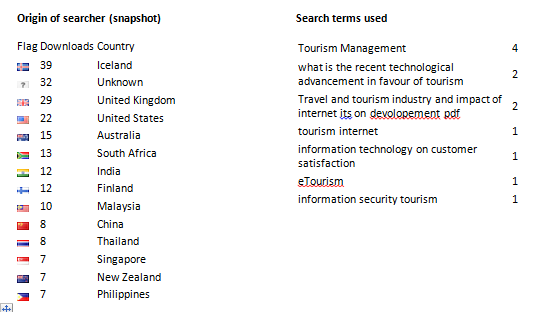

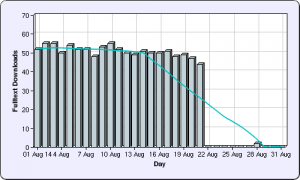
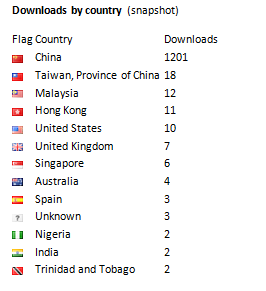
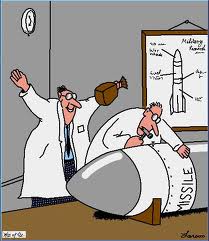



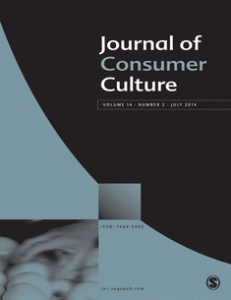






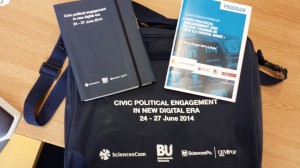
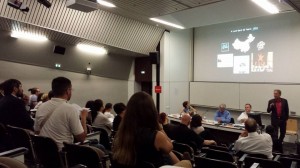
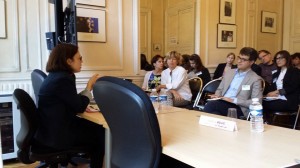












 Conversation article: London Marathon – how visually impaired people run
Conversation article: London Marathon – how visually impaired people run Horizon Europe News – December 2023
Horizon Europe News – December 2023